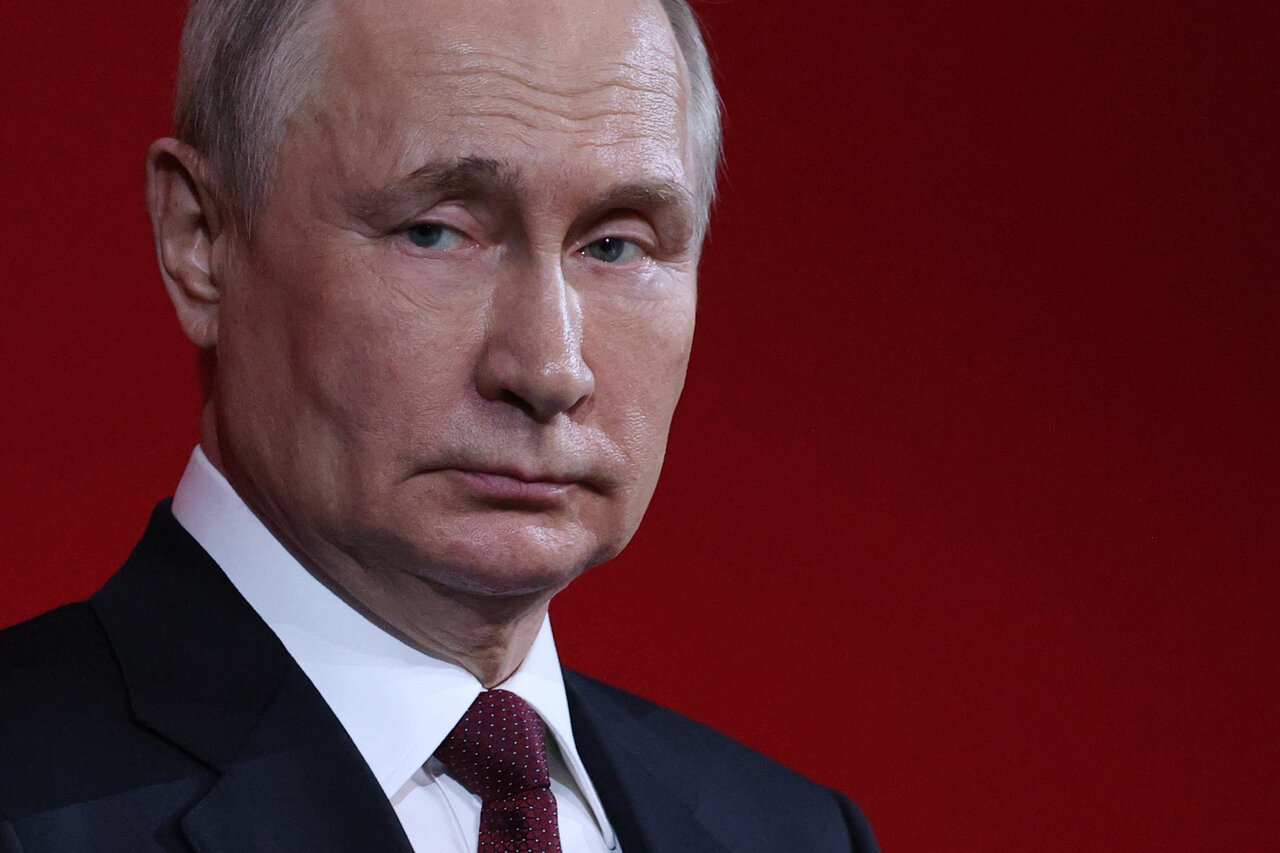Putin praises Iran's social cohesion under its Leader, underscores nuclear cooperation

TEHRAN – In an address to heads of international news agencies on Thursday, Russian President Vladimir Putin highlighted the resilience and unity of Iran’s society, stating that "Iranian society is consolidating around the country's political leadership."
He made the statement responding to a loaded question from a journalist asking about the possibility of "regime change" in Tehran.
Putin's remarks come days after the Israeli regime initiated its ongoing act of aggression against Iran on Friday, a move widely condemned as a destabilizing act in the region.
The regime has martyred over 300 Iranians, including senior officials and nuclear scientists, and has injured over a thousand citizens, predominantly women and children.
The Russian president addressed the ineffectiveness of the recent Israeli attacks on Iranian infrastructure.
"Iran's underground facilities," Putin stated, remain "operational, nothing happened to them."
He addressed concerns surrounding Iran's nuclear program, confirming Russia's ongoing participation in the operation of the Bushehr Nuclear Power Plant.
He reiterated the plant's continued operational status. He specifically noted, "Over 200 Russian experts are currently helping build two more nuclear reactors in Iran."
Putin further claimed that Russia and the Israeli regime have an agreement to ensure the security of these facilities.
Addressing the broader conflict between Iran and the Israeli regime, Putin presented a potential path to de-escalation, though he emphasized that "the decision was up to Tehran and Tel Aviv."
He advocated for a comprehensive agreement that "takes into account the interests of all parties."
In Putin's view, such an agreement must take into account Iran's right to peaceful nuclear energy, including not only in the energy sector, as well as what he called Israel's "right to unconditional security."
He expressed confidence that "such a solution can be found."
Previous to Putin's comments on the Israeli-imposed war on Iran, other Russian officials had also made statements regarding the topic, with Foreign Minister Sergey Lavrov censuring the West's support for Israeli aggression against Iran in a phone call with his Iranian counterpart Abbas Araghchi.
Iranian ambassador to Russia Kazem Jalalil said Tuesday that the Iranian people "will never forget those who were with us during these times and those who chose to remain inactive."
Elsewhere in his address, Putin claimed: "Iran is not asking Russia for military assistance. We had previously offered Tehran to work on air defense systems, but they did not show much interest."
He also stated that the strategic partnership agreement between Iran and Russia does not contain any articles on the defense sector, and "Tehran is not asking for this."
Putin confirmed he's been "in contact" with both U.S. President Donald Trump and Israel's convicted war criminal Premier Benjamin Netanyahu regarding the regime’s war on Iran.
The Russian president also noted that Moscow is in dialogue with "Iranian colleagues," adding that "contacts will continue tomorrow and the day after tomorrow."
Putin also emphasized the strong and growing ties between Tehran and Moscow, stating, "There is a fairly high level of trust between Russia and Iran."
He noted that this trust creates significant potential for further cooperation, particularly in the nuclear sector.
The relationship between Iran and Russia has improved in recent years, underpinned by a 20-year strategic partnership agreement signed during President Masoud Pezeshkian's trip to Moscow.
It was announced that the Russian President is scheduled to visit Tehran, but the timing has not reportedly been decided yet.
This agreement encompasses a wide range of cooperation, including economic and political spheres, as well as some topics related to security.
